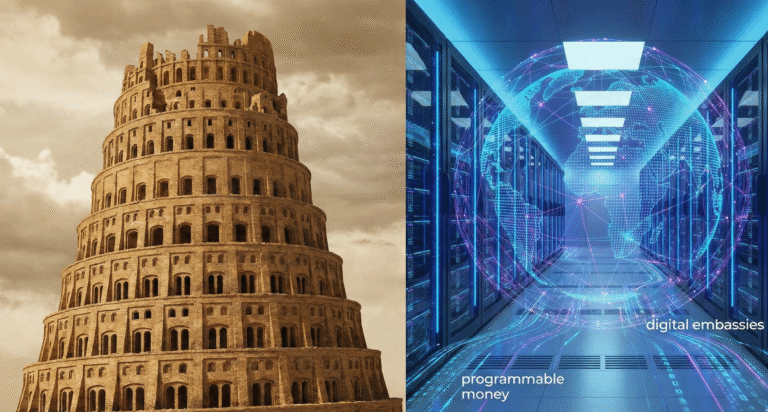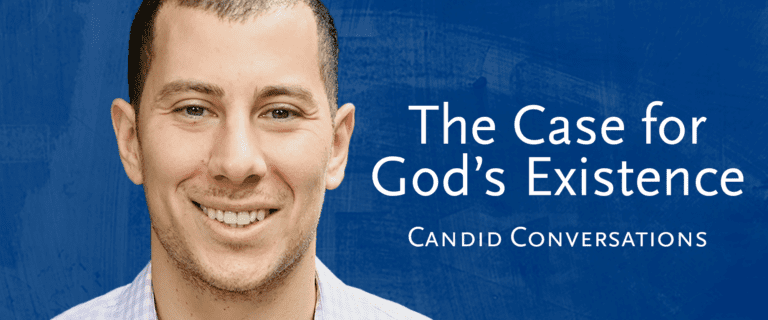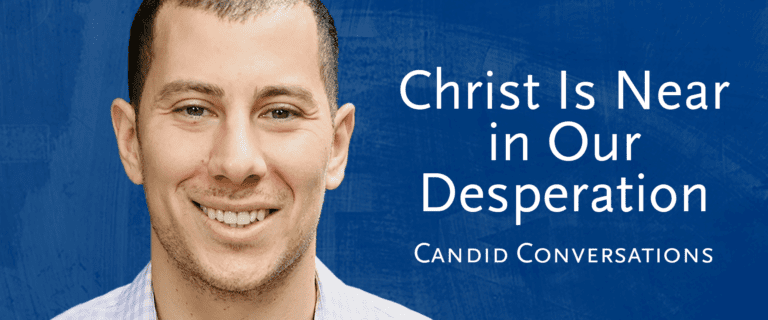How do science and history affirm the existence of God? Join Jonathan and special guest Lee Strobel, former atheist and best-selling author of The Case for Christ, as they offer a compelling perspective that will build your faith.
This conversation is condensed and adapted from episode 235 of Candid Conversations with Jonathan Youssef. Be sure to listen to Lee Strobel’s informative interview in its entirety. Subscribe today on your favorite podcast platform or listen online at LTW.org/Candid.
There are all kinds of great resources where people can find answers that will satisfy their heart and soul.
Jonathan: Considering your faith walk and work in apologetics, do you find that people are looking for evidence, or does the evidence not really matter to them, even if it is real?
Lee: There are different kinds of sticking points that people have. I’ll get in a conversation with a person who is not a Christian, and I’ll say to them, "If you could ask God any one question and you knew He’d give you an answer right now, what would you ask Him?"
Eighty percent of the time, they would say some permutation of the question "If God is real, why is there suffering?" I used to give them a five-point sermon on why God allows suffering, but now I say, "Of all the potential questions in the universe, why did you choose that one?" Now they get personal. Now they say, "Because my wife has just been diagnosed with cancer. Where is God in that?" or, "We lost a baby in childbirth five years ago. Where is God in that?" And I’ve come to realize that what that person needs at that moment is not a five-point sermon and the evidence; they need me to sit down next to them, put my arm around their shoulder, weep with them, and be Jesus to them in that moment.
Jonathan: I do wonder in our day and age if we’re severely lacking in that pastoral approach. But for Generation Z, the word "atheist" is no longer a dirty word. What’s the good news?
Lee: Back in the 1970s when I was an atheist, you never told someone you were an atheist. But today it’s not only socially acceptable, it’s socially laudable in a lot of places like college campuses. But there is still a hunger; people are still asking this question: Is God real? There is still a God-shaped void in their life, and they’re looking for answers to ultimate questions.
It’s healthy to ask questions. I don’t think we should shy away from that. I deconstructed my atheism and found faith. So, God is not surprised by our questions. I think we want to encourage young people to ask the tough ones. Questions about faith are sometimes like that nightmare that we don’t honestly talk about. But when we say, "I’ve got a question about God. Did Jesus ever really claim to be the Son of God? Is the resurrection really credible in the 21st century?" all of a sudden, you get into a mode of exploring answers. The difference between when I deconstructed my atheism back in the 70s and early 80s and today is that back then there were virtually no resources available on an accessible level.
Jonathan: We have so much access to information now, but we’re going to the wrong places. Now the internet might eventually give you the right answer, but you have to look for it.
Lee: This is the reason I knew I had to write a book on God’s existence. My publisher had come to me and said they discovered that the question "Is God real?" is typed into a search engine 200 times a second across the globe. So, I knew that if there’s this many people asking this question, it needs to be addressed.
Today, there are all kinds of great resources where people can find answers that will satisfy their heart and soul. But when you go on the internet and type in the question "Is God real?" you’ll get 3.7 billion results in less than a second. This digital tidal wave is now generating more confusion than enlightenment.
Jonathan: Talk to us a little bit about your book Is God Real? and how it addresses that ultimate question.
Lee: I’ve drawn from some of my earlier works and conducted new interviews to give a comprehensive view that looks at science, philosophy, and history. In the last 50 years, we’ve had a series of discoveries in science that make belief in God more credible today than at any other time in history. I’m speaking of things like cosmology, the origin of the universe; physics, the fine-tuning of the universe; and biological information, DNA.
I’ll give you an example from cosmology, [the study of] the origin of the universe. Scientists believed for centuries that the universe was eternal—it always existed. And when Christians would say, "Well, the Bible says there was a beginning," they’d respond, "No, it’s eternal."
Well, we’ve had a series of discoveries in the last 50 to 80 years that point powerfully toward the fact the universe had a beginning point in the past. One of the most prominent cosmologists in the world said the evidence is now in place that the universe had a beginning, and virtually every scientist now accepts that. Then you think, "We now know that the universe began to exist; therefore, the universe must have a cause behind it."
What kind of cause can bring a universe into existence? Well, it must be transcendent because it existed apart from creation. It must be eternal because it existed before physical time came into being. It must be immaterial or spirit because it existed before the physical world was created. It must be powerful, given the immensity of the creation event. It must be smart, given the precision of the creation event. It must be personal because God had to make the decision to create. It must be creative; we can tell that just by looking around us. It must be loving or caring because He crafted a habitat so carefully for us to flourish in.
Transcendent, eternal, spirit, powerful, smart, personal, creative, loving, unique—that’s a description of the God of the Bible. If I were an atheist today, I would come to the conclusion that God exists just based on the evidence of cosmology.
Jonathan: Do you have a word for those that are heartbroken over those in their lives who are still lost?
Lee: Number one, don’t panic. Keep in mind that so many forces are pulling them away from their faith and that they will be lauded for expressing a belief of atheism versus an authentic belief in Jesus Christ.
Number two, pray for them fervently. When you read the account of Jesus’ death on the cross, He prayed for nonbelievers until His final gasps before He died. The imperfect tense of the Greek suggests that He didn’t just say it once, but He kept repeating it during the torture and the crucifixion, "Father, forgive them. Father, forgive them. Father, forgive them for they know not what they do."
He’s praying for nonbelievers, people so depraved they’re torturing to death the Son of God until His final gasp on the cross. So, we need to continue to pray for our friends and family members who are outside the faith right now.
History has not been consummated; Jesus has not returned yet; there is time. Let the process play out a little bit. Let them ask questions and really seek answers to satisfy their heart and soul. Because, I believe, if they do, they’re going to find something that is going to convince them that their faith in Christ would be well-placed.
This conversation is condensed and adapted from episode 235 of Candid Conversations with Jonathan Youssef.
Share
Recent MY Journal

The Christian View of AI: From Davos and Harari to Faithful Ministry
February 10, 2026

Unmasking Inclusivism: Six Principles Threatening the Church
February 6, 2026
Sign Up for Ministry Updates
You might also like
Faith
Christ Is Near in Our Desperation (Candid Ep. 193)
April 3, 2024
Faith
Facing the Future with Confidence
January 3, 2024
Faith
From Dead Religion to Living Faith
November 23, 2022




